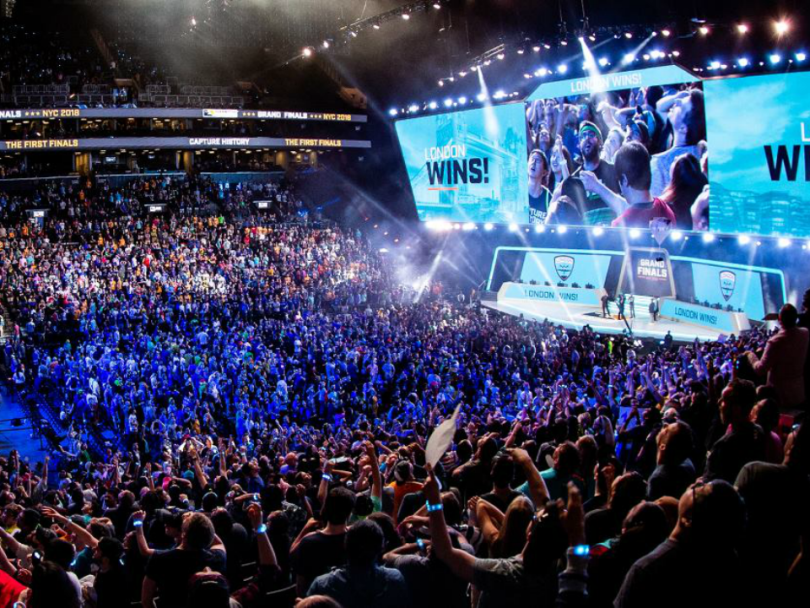
What does popular online video game Overwatch have in common with Drake? They are two of the hottest tickets at Brooklyn’s Barclays Center this summer.
All 19,000 seats of the basketball and concert arena were sold out this past Friday and Saturday, as fans (including, surprise, Bon Jovi) came from around the world to witness the first grand finale of the Overwatch League championships, featuring the London Spitfire facing off against the Philadelphia Fusion.
The two-day event was the culmination of the Overwatch League’s inaugural season, a five month-long series of matches between 12 different teams from around the world, including nine in the United States, and one — the New York Excelsior — based here in the city. Parent company Blizzard (World of Warcraft, Diablo) debuted Overwatch in 2016 to mass appeal, and inspired the creation of the Overwatch League later that year. What began as an experiment with the esports format quickly exploded into a global phenomenon.
“When we created the Overwatch League we wanted to bring together some of the best elements of esports and traditional sports, using a city-based model that supports a thriving fanbase. Over 40 million people around the world play Overwatch,” explained Nate Nanzer, commissioner of the Overwatch League, to Built In NYC.
When we created the Overwatch League we wanted to bring together some of the best elements of esports and traditional sports.”
A significant portion of that 40 million came out in droves for the League finals. Viewership numbers indicate that, at any given moment, 860,000 individuals were tuned into the edge-of-your-seat action — blowing viewership expectations, of around 500,000, out of the water.
The spectacle of it all seems to prove that esports, a global genre with mass appeal, have officially arrived. True, games like Starcraft and League of Legends have given rise to professional players with devoted followings, yet they have always remained niche, and with the majority of the fanbase established overseas. The Overwatch League, still overseen by Blizzard, has managed to build a global, mainstream fanbase that continues to grow.
If there remains any doubt about the longevity or profitability of something like the Overwatch League, simply look at the team owners and investors: it’s a list peppered with veteran names in sports such as CEO of the New England Patriots, Robert Kraft, who became part owner of the League’s Boston Uprising last year. In Los Angeles, the Gladiators are owned by Kroenke Sports & Entertainment — which also owns the Los Angeles Rams, the Denver Nuggets, the Colorado Avalanche and Arsenal F.C. The list of names goes on, but you get the idea: Those with their finger on the pulse of sports are wasting no time betting on esports as the next big thing.
“We wouldn’t be here without the support of all of the team owners who believed in our vision,” said Nanzer. “From iconic sports owners like Kraft and the Wilpon family to endemic esports organizations who were prepared to take this step with us, their combined knowledge has been invaluable to the launch and growth of the Overwatch League.”
By 2019, the esports industry is expected to be worth more than a billion dollars — and growth is only expected to continue from there. With the Overwatch League’s inaugural season officially on the books, fans are already eager for the 2019 season to commence. While players may be traded and teams may shift, there’s no denying that at the rate things are going now, the League will only come back bigger and better.




